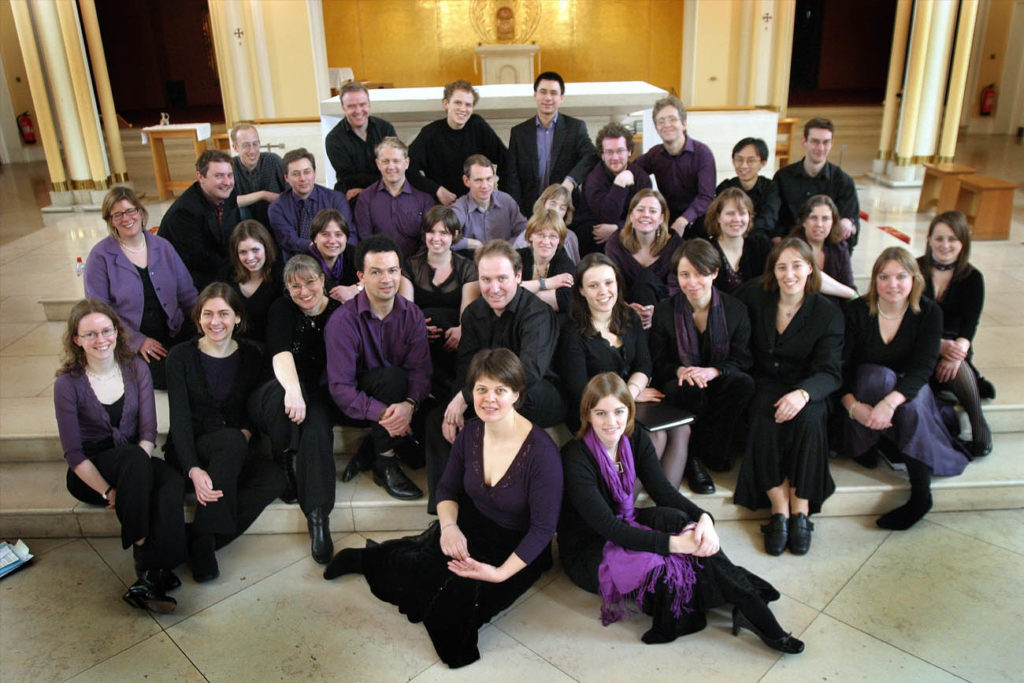
ALTHOUGH unable to welcome back Late Music last month due to an unfortunate clash, I do so now with open arms.
Steve Crowther has had to work miracles to keep Late Music afloat and bring it back into action, and he will doubtless feel amply rewarded by the appearance of the London-based Elysian Singers and the excellent turnout they elicited.
Their intelligent programme, directed by Sam Laughton, linked settings by different composers of the same or similar texts. The result stretched back as far as the 13th century, but was brought right up to date with three new commissions.
Part of Psalm 95, taken from Rachmaninov’s Russian orthodox treatment of the All-Night Vigil, inspired Cheryl Frances-Hoad’s effective Bogoroditse Devo (Rejoice, O Virgin), which was essentially tonal and included a gently rolling alto line underpinning a soprano melody. Both were sung in Russian.
The anonymous mediaeval setting of Edi Beo Thu, Hevene Quene (Blessed Are You, Queen Of Heaven) was picked up in Kerry Andrew’s setting, which she additionally framed with the words ‘O virgo splendens’. Her spare harmonies, although unmistakeably modern, reflected the early setting’s approach. The choir treated its triplet figures smoothly.
There were echoes of the past, too, in the next piece. Tom Armstrong’s setting of Emily Brontë’s poem No Coward Soul Is Mine, here enjoying its premiere, uses antiphons from Vespers for Whit Sunday, so that the text emerges in striking unisons, thereby gaining emphasis, an extraordinarily powerful effect.
Brontë enjoyed a strong Christian faith, fearless about death; Armstrong clearly senses this. He uses techniques of imitation and overlapping lines, sometimes giving the plainsong slow treatment in the men’s voices with contrasting momentum in soprano and alto lines. The Elysians were especially persuasive here.
Thea Musgrave’s witty juxtaposition of poems by Herrick and Edwin Morgan with the anonymous I Saw A Peacock With A Fiery Tail, in her imaginative journey On The Underground (Set 2), made a pleasingly comic interlude, the reprise of Herrick’s Dreams making a rueful postlude to the perky staccato of the other poems.
The choir was equally alive to Britten’s word-setting in his Five Flower Songs, which have deservedly become choral staples over the past 70 years.
There were two further premieres after the interval. David Power’s minimalist setting of the opening words of St John’s gospel, The Transfiguration, was cleverly built around an insistent refrain, ‘God spoke, light shone’. It does not deal directly with the transfiguration story, but suggests light at the end of any tunnel of trouble – as in present times. Those four words certainly shone through, often at the top of the spectrum.
The story of the Sirens’ search for Proserpine, as told in Ovid’s Metamorphoses, was the inspiration for David Lancaster’s Feathers, since Demeter gave them wings for the task. Opening with a very high soprano solo, suggesting soaring flight, its slow, rhythmless progress was beautifully sustained by the choir.
An interesting setting by Ivor Gurney of a Robert Bridges poem on John Milton was contrasted with a deeply elegiac prayer, Requiem, by John Duggan to words of Gurney, which was much the more touching of the two.
There was distinguished company in a James MacMillan folksong and Judith Weir’s My Guardian Angel, which involved the audience in a threefold Alleluia. And it was impossible to suppress a smile at the creamy Victorian harmonies of Bantock’s response to ‘My Love Is Like A Red, Red Rose’, lovingly caressed by this superb group.
Review by Martin Dreyer
York Late Music continues with two events on December 4; full details at latemusic.org.
